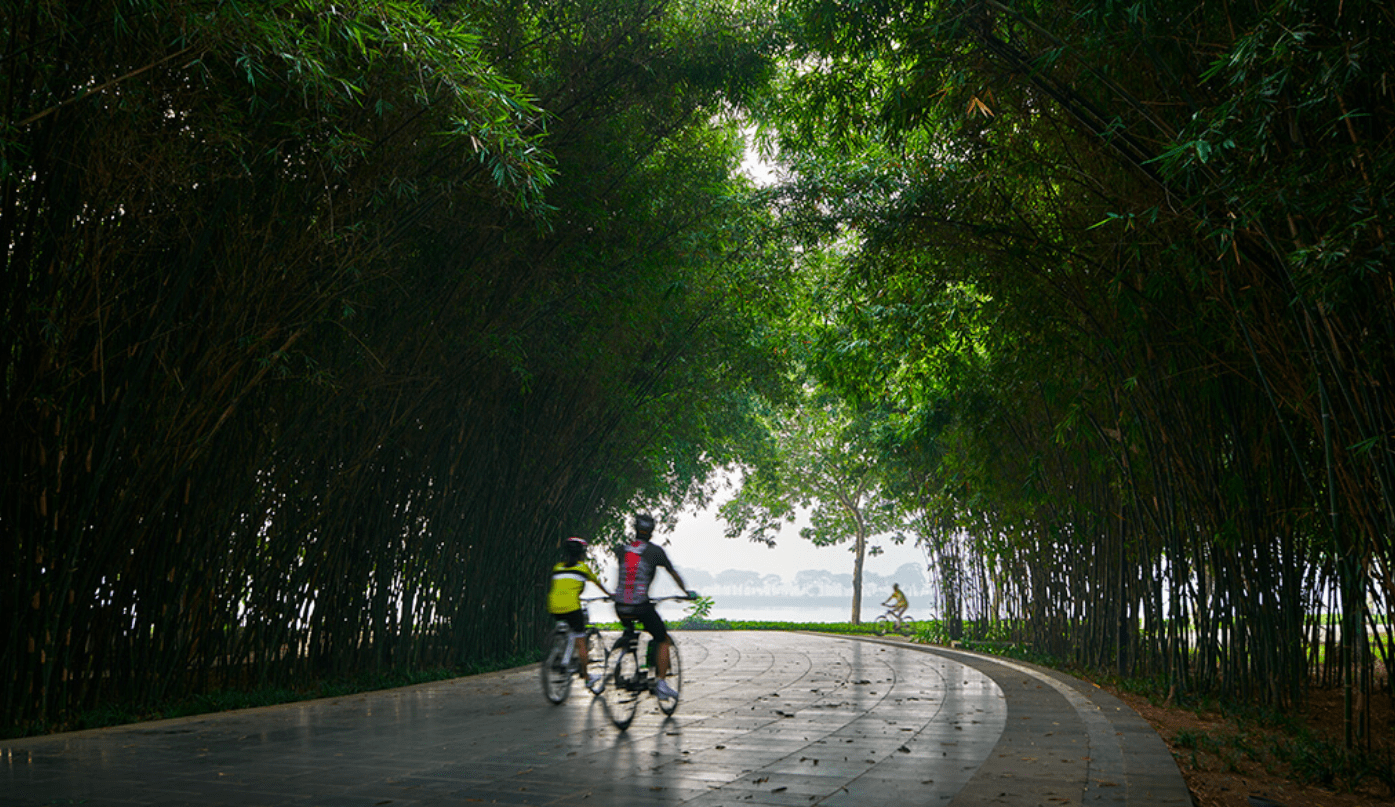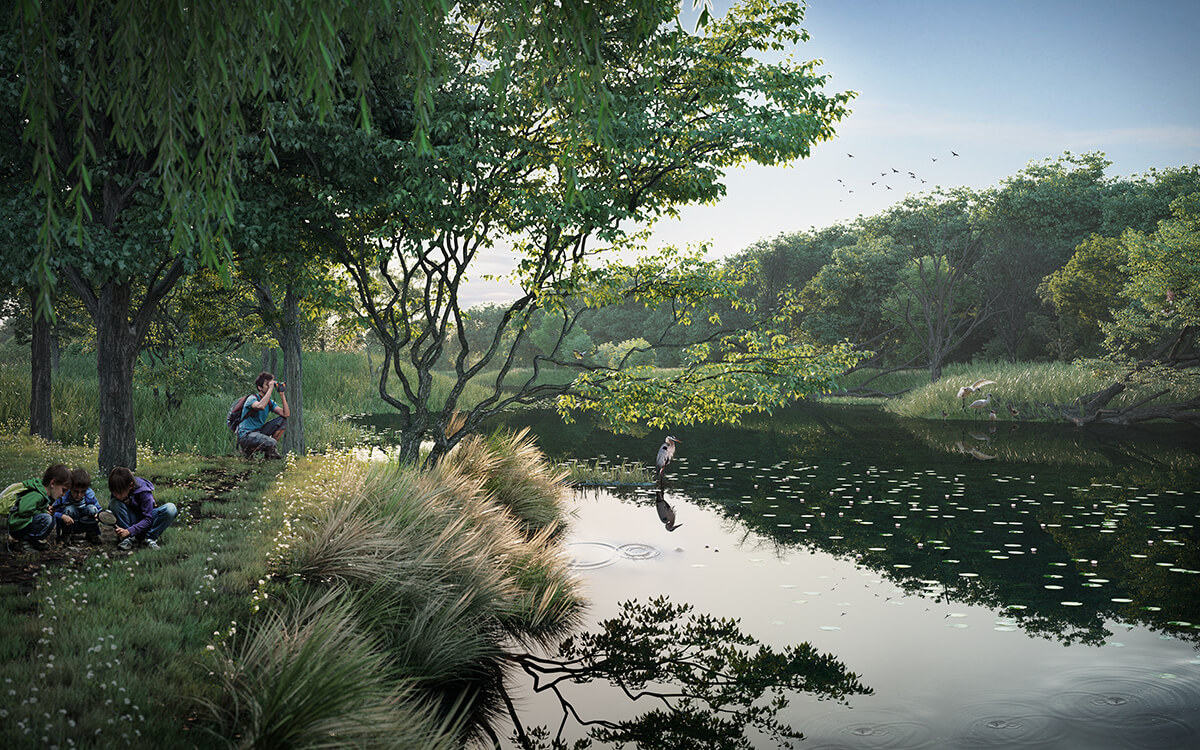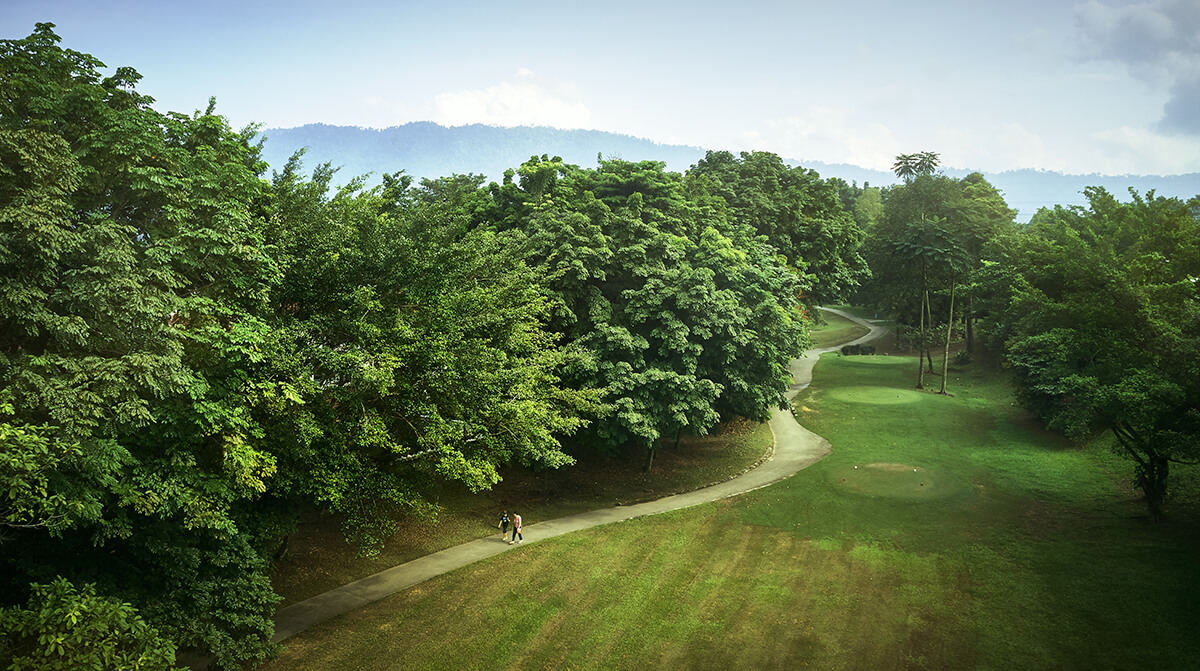
- About Us +
- Developments +
- Sustainability +
- Happenings +

Yen So Park, Gamuda City, Vietnam
Our cities face greater risks from climate change every day, and tree planting is one of the most effective solutions. Mindfully planning its townships with this in mind, Gamuda Land creates urban forests to address heat island effects while fostering biodiversity and carbon sequestration, building sustainable developments in harmony with nature, the community and the needs of future generations.

Urban forests are critical habitats to reduce urban heat island effects and support biodiversity restoration in bustling cities. Beyond supporting a variety of species and habitats, urban forests contribute to essential services including water filtration and absorption, nutrient cycling, air filtration and noise buffering.
Urban forests also store very high amounts of carbon, which helps reduce carbon emission levels in cities, making air cleaner and healthier for its residents.
For over 25 years, Gamuda Land has mindfully taken this revelation to heart and is committing itself to environmental and biodiversity conservation which can dramatically reduce the urban heat island effect and various other contributing factors to global warming.
Gamuda Land’s efforts encompass a wide range of initiatives, which include conducting biodiversity assessments, selection of native tree species, planting one million trees and saplings by 2023 and setting up a wetlands arboretum for nature conservancy. This has borne fruit in the form of 1,550 acres of urban parks in 11 townships across Malaysia and Vietnam with evidenced increase in biodiversity.

For more information on Gamuda Parks, click here.